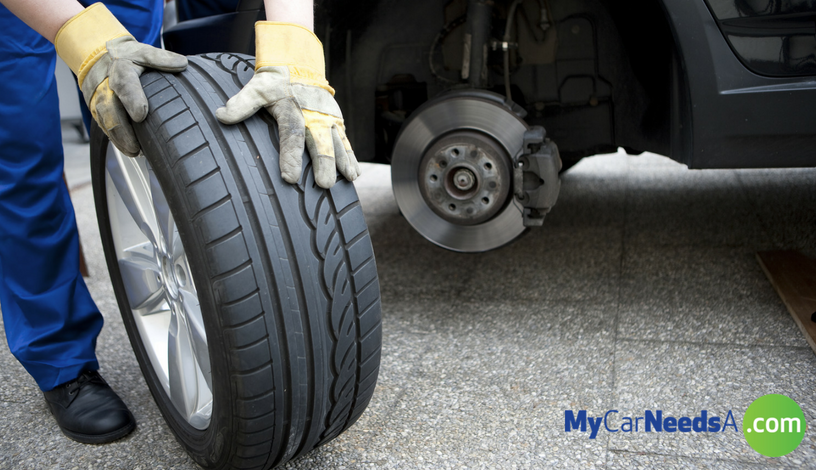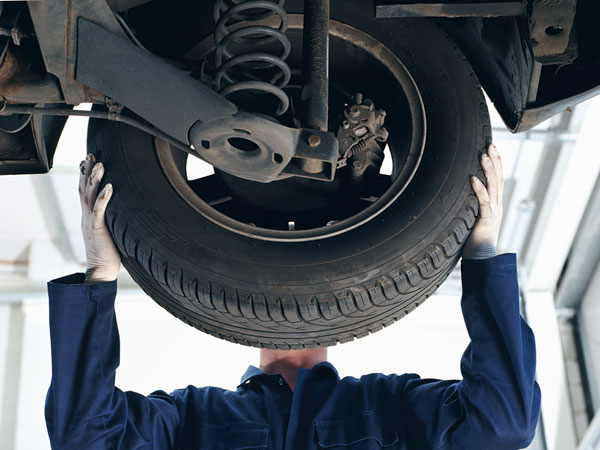Sep 26, 2017

There is a wealth of choice when it comes to buying tyres, but how can you identify which tyres are right for your car? There are options available such as all-season tyres, winter tyres and summer tyres, as well as the categories of budget tyres, mid-range and premium tyres.
Deciding what best suits your car is pretty much down to your car make and model and also your driving environment. At MyCarNeedsA.com ‘The Glove Box Blog’ are here to help you get to grips of how to choose the right option for you.
Starting from the top, the main options can be defined by quality and price.
Budget tyres are a cheap and cheerful option that are estimated to last roughly 7,000 -8,000 miles and best perform in summer & dry conditions.
So, if you live in wetter weather conditions then budget tyres are not the best option for your car. However, if you do not cover a lot of miles in your vehicle and tend to drive shorter journeys then you should consider budget tyres.
Mid-Range tyres are great if you don’t have the budget for premium tyres but need a better quality tyre to see you through the wetter weather. Mid-range tyres will also have a better lifespan than the budget range with some brands promising 12,000 – 15,000 miles. Mid-range tyre brands would include Avon, Toyo, Kumbo, Firestone and much more.
Premium tyres are the highest quality of tyres available and promise a better fuel economy, better stopping distance and lower noise. As well as benefiting drivers for up to 20,000 miles the premium tyres will have the best technology and thicker sidewalls which ultimately improves performance in wet and cold conditions.

Once you have established your budget and what level of tyres you can afford, then it's important to consider your driving environment and habits. What weather conditions do you mostly live in? What would be the right fit to ensure you have the best braking distance and better fuel economy?
The difference in tyres is all down to the type of rubber used to construct the tyre, and choosing the right tyre is down to what tyre is right for you.
Summer tyres are made from a firm compound which makes the consistency of the tyres slightly stickier under hot conditions which ultimately gives the tyre a tighter grip on the road. Each tyre comes with its own characteristics which are shaped and grooved to optimise performance, there is usually straight lines and broad grooves which will help the tyre push the water away ultimately improving handling and grip when turning and accelerating.
If you live in warmer weather conditions where you are unlikely to experience snow or rain then this option is for you, or perhaps in the UK if you need to change your tyres in April it's best to change to summer tyres and then closer to the colder months change to winter tyres for optimum performance and safety.
Winter tyres are capable of remaining soft, even at low temperatures and contain complex characteristics and thread patterns including zig zags and grooved lines to essentially help the tyre grip the ground in the harshest conditions. With these patterns and shapes, it effectively assists the tyre in snow and wet environments and improves stopping distance dramatically whilst also improving take-off speed.
Winter tyres perform better below 7 degrees, in the UK this is typical weather conditions from October through to March which is pretty much half of the year. Winter tyres best perform in the colder/ freezing temperatures, however, if driven in higher temperatures they can wear quicker and reduce handling.
All season tyres are essentially a balance between the options of winter and summer tyres. The Rubber is made from an intermediate rubber compound and designed to have a long thread life even in warm weather, they are great for non-freezing environments and perform for longer than average.
All season tyres are great for grip on dry roads and offer a more superior handling experience than winter tyres in the summer.
All season tyres are a great option for people living in the UK where winter weather conditions are not as harsh as other countries and the likelihood of snow is low. Winter tyres also offer a level of convenience to the consumer. Car owners will not need to replace tyres as frequently providing the thread depth is still within the limit.
When choosing your tyres, have your budget in mind, then think of the type of environment you usually drive in and lastly consider what driving habits you have, if you need a high-performance tyre or perhaps your make of car requires a certain type of tyre.
If your car needs new tyres then why not try and get a quote to compare prices, reviews and location of your next tyre fitting, MyCarNeedsA.com also have multiple fast fit tyre centres, dealerships and independent garages who can offer tyre fitting and quotes.